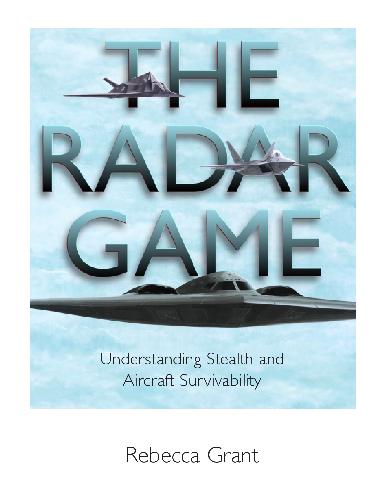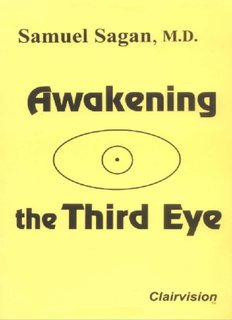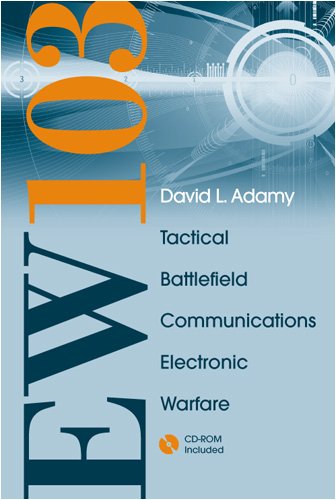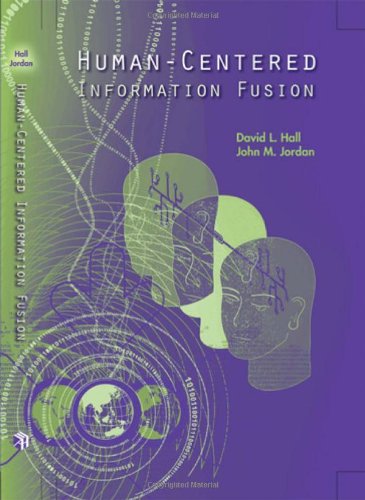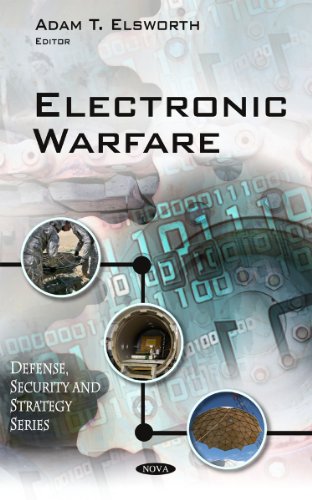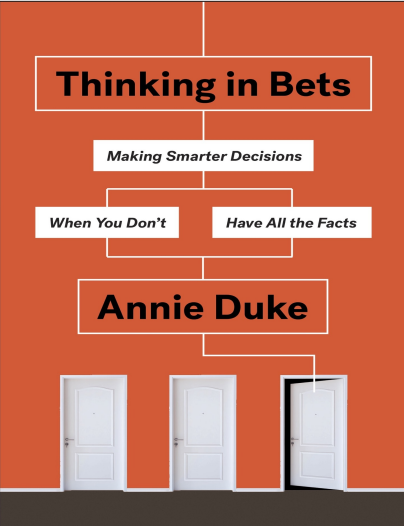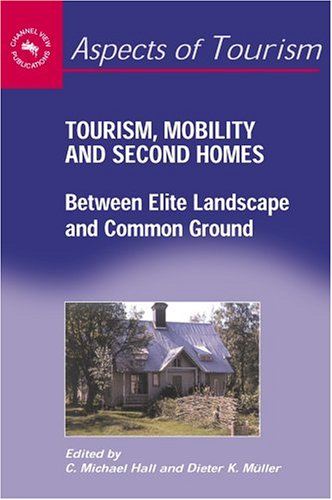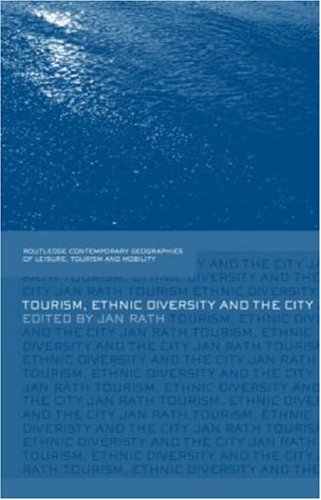موضوعات
آموزش و پرورش
ادبیات و زبان
پزشکی، دندانپزشکی و داروسازی
تاریخ و جغرافیا
داستان و رمان
دیگر
دین و فلسفه
روانشناسی
ریاضیات و آمار
سلامتی، تناسب اندام و رژیم غذایی
شیمی و پلیمر
علوم اجتماعی و حقوق
علوم زیستی و بیوتکنولوژی
فیزیک و نجوم
کامپیوتر و اینترنت
کتابهای کودکان و داستان
کسب و کار و اقتصاد
کشاورزی و دامپزشکی و غذا
معماری
مهندسی و فناوری
هنر و تئاتر
محصولات
The radar game: Understanding stealth and aircraft survivability - Original PDF
نویسندگان: خلاصه: Precision weapons and rapid targeting information mean little if aircraft are unable to survive engagements with enemy air defenses. In addition to costing the lives of pilots, high levels of attrition can ultimately affect the outcome of the theater campaign. One of the most critical factors in determining the success of an air operation is survivability. In the last several decades, the term survivability has been associated with analysis of how low observables and electronic countermeasures can help aircraft carry out their missions in hostile airspace. Discussions of survivability immediately bring to mind stealth aircraft, radar jamming and debates about the latest SA-10 threats. Yet the quest for survivability is not a fad of the Cold War or the high-technology 1990s. Its roots, and its importance to combined arms operations, go back to the first use of military aircraft in World War I.EW 103: Tactical battlefield communications electronic warfare - Original PDF
نویسندگان: خلاصه: The third book in the bestselling "Artech House EW 100" series is dedicated entirely to the practical aspects of electronic warfare against enemy communication. Like its predecessors, EW 103 presents a series of highly informative and easy-to-comprehend tutorials, along with insightful introductory and connective material that helps practitioners understand how each aspect fits together. From communications math, receiving systems, and signals, to communications emitter location, intercept, and jamming, this comprehensive volume covers all the key topics in the field.Human-Centered Information Fusion - Original PDF
نویسندگان: خلاصه: Information fusion refers to the merging of information from disparate sources with differing conceptual, contextual and typographical representations. Rather than focusing on traditional data fusion applications which have been mainly concerned with physical military targets, this unique resource explores new human-centered trends, such as locations, identity, and interactions of individuals and groups (social networks). Moreover, the book discusses two new major sources of information: human observations and web-based information. This cutting-edge volume presents a new view of multi-sensor data fusion that seeks to address these new developments, explicitly considering the active role of a human user/analyst. Professionals become knowledgeable about the key inputs into this innovative information fusion process, including traditional sensing resources (S-space), dynamic communities of human observers (H-space), and resources such as archived sensor data, blogs, and dynamic news reports from citizen reporters via the Internet (I-space).Introduction to Communication Electronic Warfare Systems - Original PDF
نویسندگان: خلاصه: Comprehensive engineering-level resource provides you with an excellent introduction to electronic warfare (EW) for communication systems. You are provided with a complete understanding of how modern direction finders for communication signals work, along with their limitations.Electronic Warfare (Defense, Security and Strategy) - Original PDF
نویسندگان: خلاصه: For military planners, the control of information is critical to military success, and communications networks and computers are of vital operational importance. The use of technology to both control and disrupt the flow of information has been generally referred to by several names, information warfare, electronic warfare, cyberwar, netwar, and Information Operations (IO). This book is a focus on electronic warfare which is defined as a military action involving the use of electromagnetic and directed energy to control the electromagnetic spectrum or to attack the enemy. This book consists of public documents which have been located, gathered, combined, reformatted, and enhanced with a subject index, selectively edited and bound to provide easy access.Thinking in bets making smarter decisions when you don’t have all the facts - PDF
نویسندگان: خلاصه: Professional poker player Annie Duke explores how we can all become better decision-makers in an uncertain and challenging world. She helps us understand how to disentangle the role of luck and skill in determining outcomes, ultimately helping us make better bets that lead to better outcomes and a better life. Get book on Amazon (Must Read) Access My Searchable Collection of 100+ Book Notes Key Takeaways Biases “Resulting”: Our tendency to equate the quality of a decision with the quality of its outcome. The prevents us from accurately assessing the quality of our decisions and the role of luck in the outcomes we achieve. Hindsight bias: Our tendency to see an outcome as inevitable after an outcome is known. It is the enemy of probabilistic thinking that prevents us from seeing the many other outcomes that could have occurred. Loss aversion: Losses hurt more than gains feel good. E.g., winning $100 at blackjack feels as good as losing $50 feels bad. The same applies to being right and wrong. Being wrong hurts more than being right feels good, unless you reframe your relationship with being wrong. Motivated reasoning: The beliefs we hold influence how we process new information. Blind-spot bias: People are better at recognizing biased reasoning in others but are blind to bias in themselves. Binary bias: Our tendency to seek clarity and closure by simplifying complex ideas and situations into two categories. What is thinking in bets? A bet is a decision about an uncertain future. Thus, most of the decisions in your life – switching jobs, choosing a partner, selecting your field of study, not doing something – are bets. They’re choices that you make in the face of an uncertain future. Thinking in bets begins with understanding that there are two forces that influence how our lives turn out: the quality of our decisions and luck. Being able to recognize the difference between these two forces is what thinking in bets is about. Once you can distinguish between the two, you can focus on improving the quality of your decisions, which will help you in the long run. Poker vs chess as a metaphor for life “Life is more like poker. You could make the smartest, most careful decision in firing a company president and still have it blow up in your face. You could run a red light and get through the intersection safely – or follow all the traffic rules and signals and end up in an accident. You could teach someone the rules of poker in five minutes, put them at a table with a world champion player, deal a hand (or several), and the novice could beat the champion. That could never happen in chess.” Life consists of skill, luck, and hidden information. While chess is a highly strategic game, it is unlike life in that it involves very little hidden information or luck. Poker, on the other hand, is a much better model for life. It requires skill, luck, and making decisions in the face of incomplete information. Whereas in chess if you make all of the right decisions, you’re likely to win, in poker, that’s not the case. What’s a good decision? “What makes a decision great is not that it has a great outcome. A great decision is the result of a good process, and that process must include an attempt to accurately represent our own state of knowledge. That state of knowledge, in turn, is some variation of ‘I’m not sure.’” Most of us evaluate the quality of our decisions based on the outcomes we achieve. But you can make a bad decision that turns out favorably and a good decision that turns our poorly. Equating outcomes solely with the quality of your decisions is one way in which we fail to improve our thinking and understand the world. Redefining right and wrong. “If we aren’t wrong just because things didn’t work out, then we aren’t right just because things worked out well.” Being wrong is not a bad thing. It’s an opportunity to learn and grow. It requires humility, an open mind, and a willingness to study our actions. Once you’re comfortable not being “right” or “wrong and living in the shades of gray, you start to learn more from your decisions and the outcomes you experience. This has an added emotional benefits of making the highs less high and the lows less low. Become a calibrator Calibrators use experience and information to more objectively update their beliefs to more accurately represent the world. The more accurate our beliefs, the better the foundation of the bets we make. The better the foundation of the bets we make, the more likely it is that we achieve favorable outcomes in the long run. Default believers “We form beliefs without vetting most of them, and maintain them even after receiving clear, corrective information.” Our default setting is to believe what we hear is true. While we think our processing of information looks like this: We hear something We think about it and vet it, determining whether it is true or false We form our belief It actually looks like this: We hear something We believe it to be true Only sometimes, later, if we have the time or the inclination, we think about it and vet it, determining whether it is, in fact, true or false This default believing behavior means that we hold beliefs that we’ve never actually validated. And because our beliefs shape how we see the world and interpret new information, we hold heavily biased ways of thinking based on beliefs we never tested. This is a dangerous place to be. Fake news amplifies our beliefs Fake news does not convince the other side that the world is one way. It takes people on one side and entrenches their beliefs even further. It plays to the views of our filter bubbles, and in doing so, it amplifies and makes our preexisting beliefs. Being smart makes it worse “It turns out the better you are with numbers, the better you are at spinning those numbers to conform to your beliefs.” Smart people are not more rational thinkers. In fact, they’re more prone to letting biases cloud their vision of the world. Because smart people are better at taking in constructing narratives that support their beliefs, they find more creative ways to rationalize and frame data to fit their preexisting points of view. It’s helps to admit you might be wrong “The more we recognize that we are betting on our beliefs (with our happiness, attention, health, money, time, or some other limited resource), the more we are likely to temper our statements, getting closer to the truth as we acknowledge the risk inherent in what we believe.” When we admit that we aren’t sure of something, we’re more open to updating our beliefs. When we’re more open to update our beliefs, we develop a more accurate view of the world over time. This allows us to improve the quality of our decisions, and in the long run, the outcomes we achieve. Luck vs. skill in outcomes In life we make bets. Those bets lead to outcomes. And ideally, those outcomes teach us something about how we can make better bets. When we analyze outcomes, we ask ourselves: “why did something happen the way it did?” To learn from these inquiries, we have to figure out the role of both luck and skill. Luck is everything that we can’t control – the actions of others, the weather, our genes. Skill is related to how clear our understanding of the world is and the quality of the decision we made based on that understanding. Because of the self-serving bias, we often fail in analyzing outcomes. When something good happens, we attribute it to our skills. We something bad happens, we attribute it to back luck. Basically, we take credit for the good and deflect blame for the bad. “We must believe in luck. For how else can we explain the success of those we don’t like.” – Jean Cocteau The opposite is true when we analyze the outcomes of others. We often attribute their good fortune to luck and their bad fortune to their decisions. These tendencies make us less likely to form an accurate understanding of why things happen in our lives, and so we often learn very little. But if we fight the self-serving bias and learn to better disentangle the role of skill and luck, we can slowly improve our decision over time. Comparing ourselves to others Our happiness is not always related to our objective conditions. In fact, it’s often driven by how we’re doing comparatively to the peer group that we choose. So even when we climb the ladder and improve our circumstances, we often end up unhappy as we continue to see other people doing better than us in certain domains. This comparative frame makes us more likely to be less giving, to be zero-sum thinkers, and to cloud our vision about what drives both our outcomes and the outcomes of others. Why you should improve your decision-making “The cumulative effects of being a little better at decision-making, like compounding interest, can have huge effects in the long run on everything that we do.” Just like how good habits or good investments compound, so do improvements in our decision-making. The earlier you learn to improve your decisions, the better the results. “Improving decision quality is about increasing our changes of good outcomes, not guaranteeing them.” No matter how good your decisions are, you can’t guarantee good outcomes. You can only improve the odds that you get a better outcome. The Rashomon Effect Even when people experience the same event at the same time, if you ask them about it, you will often get two very different accounts about what happened. That’s because the way we interpret the world is not only a function of the objective experience, but includes how we see and choose to understand the world. Overweighting opinions based on feelings “When we have a negative opinion about the person delivering the message, we close our minds to what they are saying and miss a lot of learning opportunities because of it. Likewise, when we have a positive opinion of the messenger, we tend to accept the message without much vetting. Both are bad.” Your relationship with “the messenger” clouds how you see “the message.” If you like them, you see it more favorably. If you don’t like them, you see it less favorably. It’s important to pay attention to this and be honest with yourself to continue being open to good ideas and to not be persuaded by bad ideas. Temporal discounting “The tendency we all have to favor our present-self at the expense of our future-self is called temporal discounting.” When we’re out drinking late at night or thinking about how to invest our money, we tend to overweight our present selves, often at the expense of our future selves. This “present self bias” often leads to pain for us down the road and is mostly avoidable. Don’t watch the ticker “We make a long-term stock investment because we want it to appreciate over years or decades. Yet there we are, watching a downward tick over a few minutes, consumed by imagining the worst. What’s the volume? Is it heavier than usual? Better check the news stories. Better check the message boards to find out what rumors are circulating.” Stop watching the ticker. Don’t get lost in the trees and miss the forest. Sometimes we need to zoom out of the noise of the present to make good decisions about an uncertain future. If you can learn to do this well, you’ll be less anxious about the problems of today and be able to make less emotional decisions. Reactive decision-making is worth avoiding because it often leads us to try to get rid of negative emotions in favor of sustaining positive emotions. This can keep us off track from our longer-term goals. Feelings are path dependent Image you’re playing blackjack in a casino. You start the night with $1,000 and one of two scenarios happens: You lose $900 in the first hour, going on to win it back and end the night even. You win $1,000 in the first hour, going on to lose those gains and end the night even. All of us feel better in the first scenario, despite ending up in the same place. That’s because in the first scenario we end up making our way back from down, and in the second we feel the pain of having been up and not quitting. What’s silly is that both outcomes are the same. The takeaway is that how we feel about something depends heavily on how we got to that outcome. So even when we end up with better outcomes, we can end up feeling worse than if we had worse outcomes. The path of how you got to some outcome matters more than you think. Build Ulysses contracts A Ulysses Contract is when our past-selves prevent our present-selves from doing something stupid. There are two types of Ulysses Contracts: Barrier-inducing: If you want to eat healthy and are meeting a friend at the mall where there is a food court with unhealthy food, you can eat something beforehand or not leave enough time to be able to even visit the food court. You’ve created a barrier (suppressing your hunger or not leaving time) so you can better live by the actions you’ve decided to take. Barrier-reducing: If you want to eat healthy and have a penchant for potato chips, you could choose not to ever have potato chips in the house. That way, when you’re feeling hungry and impulsive late at night, you won’t have them available to you. You could always go to the store, but this requires much more effort, and you’re less likely to do it. Other examples include things like setting automatic contributions to your retirement account. You can meet your investing goals without having to think about timing the market or even making the decision. Scenario planning Scenario planning can help us make better decisions and plans, anticipating how things may or may not work out and improving the quality of our plans along the way. There are two types of scenario planning: Backcasting – If you backcast, you imagine that you’ve achieve your goal. Then you work backward to think about how you got there. This is a positive frame that helps you imagine the outcome you want. Premortems – When you do a premortem, you imagine a world in which you don’t achieve your goal – aka your plan failed. You then think about all of the reasons the plan might fail, and this helps you create a plan that reduces the probability of these things from happening. Both backcasting and premortems are useful, but premortems are more effective in helping you get good outcomes. In imagining a world in which you don’t succeed, you reduce the likelihood that your plans are overly optimistic, help tackle roadblocks in advance, and feel better if you don’t succeed on your path. You won’t win every time “Life, like poker, is one long game, and there are going to be a lot of losses, even after making the best possible bets.” You won’t win or get good outcomes with everything you do. The important thing is to continue to learn, evaluate, and improve over time. But don’t expect to always win, even if you make a great decision.Tourism in Turbulent Times: Towards Safe Experiences for Visitors (Advances in Tourism Research) - Original PDF
نویسندگان: خلاصه: Tourism in Turbulent Times presents an international review of the challenges faced by the world's largest industry and governments around the world to provide safe and enjoyable experiences for visitors. The book draws on the background and expertise of contributors from 11 countries, representing scholars, government officers and industry practitioners. It addresses traditional concerns for tourism (such as crime) as well as emerging challenges posed by the global movement of infectious disease and terrorism. These topics are examined by specialists who share a view that tourism can weather turbulent times through adopting appropriate risk management strategies and continuing to provide quality service for customers. This book differs from other texts on the market by including a large group of tourism industry practitioners as contributors. These writers practice the principles they espouse and have critical insight into the real world issues facing the tourism industry. They are also very committed to finding best practice solutions to the challenges facing their industry. The book will therefore be of particular interest to tourism managers and policy makers since it provides relevant information for the important decisions they need to make.Throwing the net wide to include medicine, law, psychology, sociology, education and hard science means that a wide range of perspectives are available to address global business, insurance, security, and policy questions in this emerging area of tourism. Shocks such as the terrorist attacks of 11 September 2001, SARS and the more recent Asian Tsunami have made the tourism industry very conscious of the need to protect its customers. This book highlights the positive responses made by various sectors of the industry at destination, national and international levels. It also examines the growing adventure tourism market, characterised by small operators who need good risk management practices to weather adverse global events, as well as run a financially viable small business. Such a wide set of perspectives will be very valuable to both students and tourism professionals. - Focus on the real world business, including medicine, the international tourism industry and government. - Includes unique industry material that is not usually found in academic texts or journal articles- Written by government and industry experts who have access to interesting and timely facts and figures that would not otherwise appear in the public domainTourism, Mobility & Second Homes: Between Elite Landscape and Common Ground - Original PDF
نویسندگان: خلاصه: Second homes are an integral component of tourism in rural and peripheral areas. This volume represents a major international review of second homes for over 25 years. The volume represents helpful information for those interested in rural regional development processes.Tourism, Ethnic Diversity and the City - Original PDF
نویسندگان: خلاصه: Tourism, Ethnic Diversity and the City fills a gap in existing research in terms of how immigration relates to urban tourism and investigates the new theoretical insights and challenges for empirical research using informative case studies drawn from several advanced economies in Europe, North America and Australia. This enlightening book clearly explores the frontiers of knowledge on the interrelationship between tourism, migration, ethnic diversity and place. Exploring further the manifestations of ethnic diversity that have been commodified by immigrants in gateway cities, questioning how these expressions of culture can be transformed into vehicles for further developing the urban tourism economy. Tourism, Ethnic Diversity and the City presents a multidisciplinary approach drawing on key names from the field of geography, sociology, planning and political science and will appeal to those with an interest in any of these areas.آیا کتاب مورد نظر هنوز بر روی سایت قرار نگرفته است؟ جای نگرانی نیست! کافی است بر روی گزینه سفارش کتاب کلیک کرده و درخواست خود را ثبت کنید. در کمتر از چند ساعت کتاب شما را آماده خواهیم کرد.
